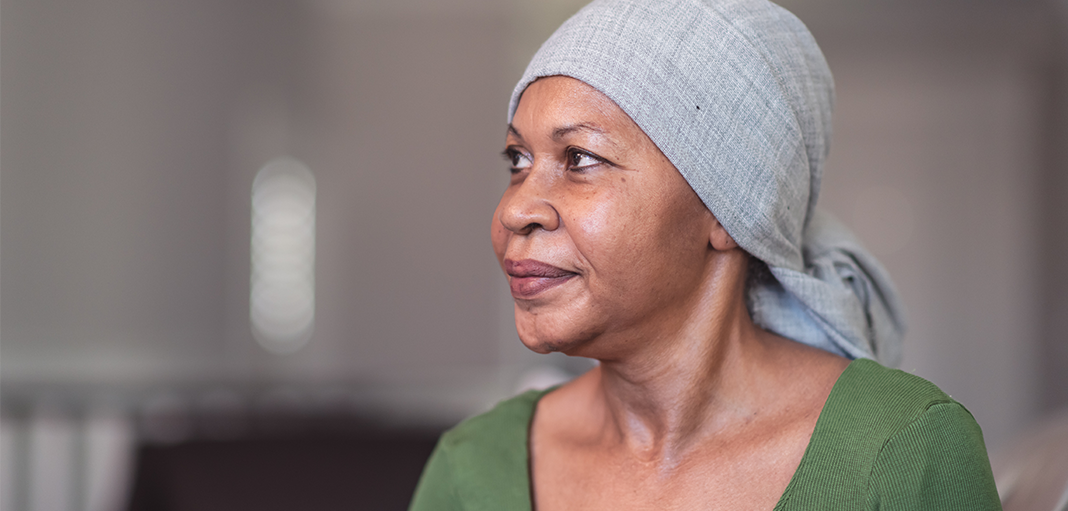Enroll with us in a few easy steps
Just about all treatments for cancer cause some type of side effect. Some are minor, and some are more bothersome. Because every patient is different, side effects vary widely from patient to patient. For example, some patients lose their hair during chemotherapy, but others do not. If you experience side effects not listed here, you should contact your doctor.
Possible breast cancer treatment side effects may include:
- Loss of appetite
- Nausea and vomiting
- Fatigue or general weakness
- Mouth sores
- Hair loss
- A higher risk of infections
- Diarrhea
- Pain
Coping with nausea and loss of appetite.
Medications can ease some of these side effects, especially nausea, vomiting, and diarrhea. You should talk to your doctor if you are vomiting a lot or if nausea grows severe. A few tips that could help with loss of appetite and other digestive issues include:
- Eating smaller meals throughout the day
- Avoiding greasy foods
- Avoiding very hot or very cold foods
- Avoiding citrus fruits
If you’re feeling well enough, exercise can help increase your appetite. Even a short walk can do wonders for your mood and your stomach. If you have mouth sores, choose softer foods like yogurt, bananas, or eggs. Some people with breast cancer do experience weight gain, which can be a result of depression, fatigue, or hormone changes. Eating healthy is always recommended, but be cautious about dieting, because you’ll need lots of nutrients to keep your energy up.
Fighting fatigue.
Get as much rest as you can, and avoid caffeine and other stimulants late in the day. Although it may seem counterintuitive, exercise may help you deal with fatigue by making you more prepared to rest at the end of the day. Plus, the endorphins released from exercise may help you feel less depressed and more in control of your health.
Pain management.
Pain after surgery or even as part of chemotherapy itself is common but treatable. The CVS Specialty CareTeam* can recommend over-the-counter remedies to provide you with relief from pain or mouth sores.
Hair loss.
Hair loss is common for patients undergoing breast cancer treatment, but it is not universal. Discuss the possibility of hair loss with your health care provider; some chemotherapy drugs are more likely to result in hair loss than others. Even if you don’t initially lose hair on your head, eyebrows or lashes, it is no guarantee that you won’t lose hair at some point. For some patients, it happens suddenly. Read tips for managing hair loss.
Avoiding illness.
Chemotherapy and radiation can stop your body from naturally producing white blood cells, which fight infections. Talk to your doctor about getting a flu shot before undergoing treatment, particularly if your regimen starts during or just before flu season. Talk to your doctor right away if you get sick, and avoid sick adults and children for a few days after treatment.
Long-term side effects.
Long-term side effects can affect people with breast cancer, and they can be hard to predict. Talk to your doctor about signs to look for and maintain good communication with all your health care providers about any health issues in the months or even years after your cancer treatment.
Possible late side effects of breast cancer treatment may include:
- Menopausal symptoms (such as hot flashes)
- Fatigue
- Headaches
- Bone loss and osteoporosis
- Infertility
- New cancers
- Blocking of the lymph vessels (lymphedema)
- Joint and muscle pain
Even though all cancer treatments come with side effects, you may not experience all of these symptoms. For those that you do experience, medical professionals, including your CVS Specialty CareTeam, can recommend treatments that can provide some relief.
This information is not a substitute for medical advice or treatment. Talk to your doctor or health care provider about your medical condition and prior to starting any new treatment. CVS Specialty assumes no liability whatsoever for the information provided or for any diagnosis or treatment made as a result, nor is it responsible for the reliability of the content.
CVS Specialty does not operate all the websites/organizations listed here, nor is it responsible for the availability or reliability of their content. These listings do not imply or constitute an endorsement, sponsorship, or recommendation by CVS Specialty.
Your privacy is important to us. Our employees are trained regarding the appropriate way to handle your private health information.
*The information provided by the CareTeam is not a substitute for medical advice or treatment. Talk to your doctor or health care provider about your condition, and prior to starting any new treatment.

